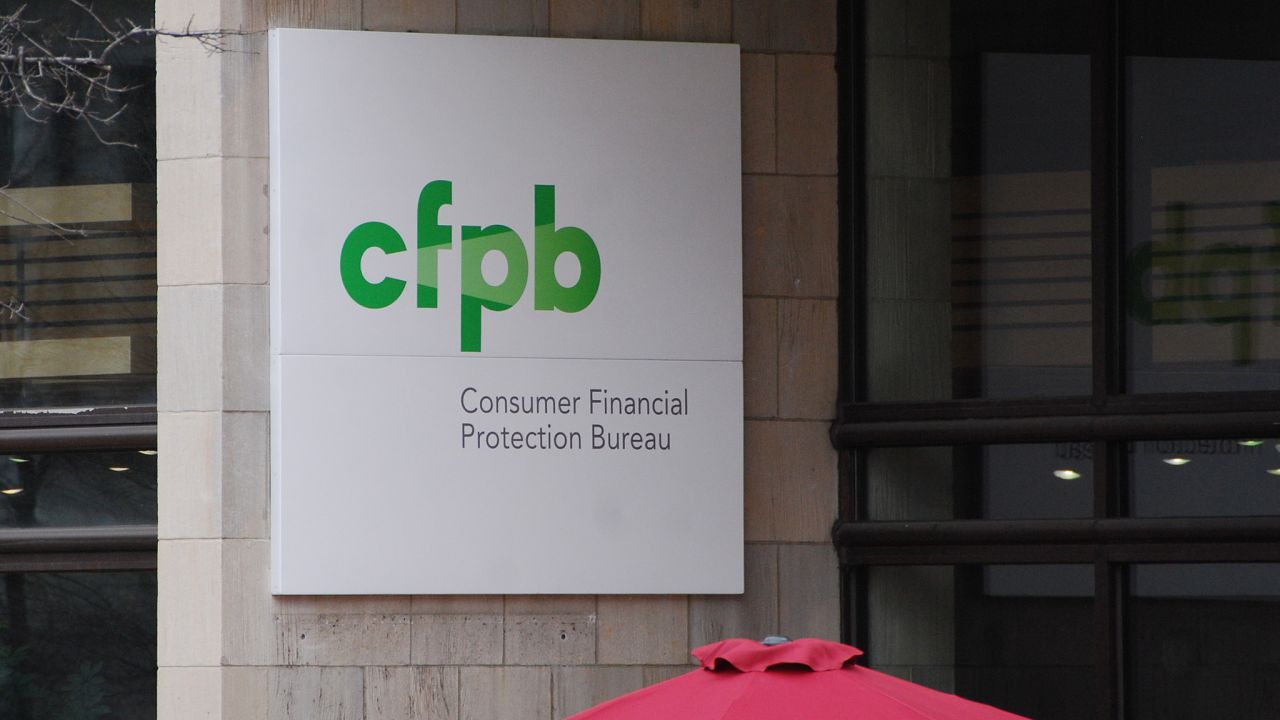
Consumer Financial Protection Bureau (CFPB), Washington, DC. (Photo by Adam Fagen/ flickr CC 2.0)
President Trump signed a congressional resolution Wednesday that allows financial institutions to block customers (that’s us) from filing class-action lawsuits. In doing so, he grabbed back a tool we were given in July by the Consumer Financial Protection Bureau (CFPB) that would have helped us fight banks or credit card companies or mortgage lenders and others if they rip us off.
The rule, which was supposed to go into effect this spring, would have banned something called a “mandatory arbitration clause” that prevents people from joining together in a class-action lawsuit. Last week the Senate was divided on whether to overturn the rule. Vice President Pence broke the tie 51-50.
When you sign up for a credit card, a checking account, a loan or other financial services from a bank, buried deep in the fine print of nearly every contract is language that requires customers to use arbitration if you have a beef. That puts you up against a team of corporate lawyers, alone. It doesn’t matter if you learn that there is a pattern of shady practices hurting millions of other customers, you cannot band together to have your day in court. And however you settle your case, the results of arbitration cases are usually sealed. So the rest of us will not be warned to steer clear.
The Consumer Financial Protection Board (CFPB) was launched in 2010, as part of the Dodd-Frank financial law, to find ways to better protect consumers from dishonest and fraudulent bankers, traders and executives like the ones that misled consumers about the toxic mortgage products they peddled as they paved the way to the global banking crisis. Or like the Wells Fargo employees who opened millions of deposit and credit-card accounts without customers’ permission.
When the CFPB was created, it was explicitly charged with studying the use of mandatory arbitration clauses. And after five years, numerous hearings, thousands of public comments and a 700-page report, the CFPB determined that class actions are, indeed, a valuable tool to safeguard consumers.
But the business lobby fought hard to roll back the rule, arguing that arbitration is faster and less expensive, and would prevent nuisance lawsuits that serve to benefit attorneys. David Lazarus a columnist for the Los Angeles Times explains how that argument is twisted:
What’s particularly repulsive here is the shamelessness with which conservatives framed the debate — pretending they were saving consumers from rapacious trial lawyers rather than doing the bidding of deep-pocketed corporate backers.
They also repeatedly painted the CFPB as a “rogue agency” that was unaccountable to the American people.
The reality is that the only ones going rogue were Republican members of Congress.
The head of the Senate Banking Committee, Mike Crapo (R-ID) turned to a little known legislative tool called the 1996 Congressional Review Act. A disapproval resolution gives legislators a limited window to block a new regulation before it goes into effect. And once it is blocked, the CFPB can’t take it up again. This is a “significant victory for Wall Street,” reports The Washington Post:
If the CFPB’s rules had gone into effect, companies like Wells Fargo, JPMorgan Chase, Citigroup and Equifax would have been exposed to billions of dollars in lawsuits for future bad behavior. The Center for Responsible Lending estimates the US banking customers paid $14 billion in overdraft fees last year, and the industry has gotten in trouble in the past for shady tactics like transaction reordering, where a bank would reorder a day’s debits and withdrawals to extract the most overdraft fee income from its customers that day.
The CFPB rule was meant to deter banks from crooked behavior and to give consumers a fighting chance to recover damages in court. Proponents argued that arbitration is rigged against customers and the right to a trial is guaranteed by the constitution. Now get this — the financial companies themselves still have a right to join with other companies to sue for damages. When he announced the rule last summer, CFPB Director Richard Cordray wrote an op-ed in The New York Times explaining it:
In truth, by blocking group lawsuits, mandatory arbitration clauses eliminate a powerful means to get justice when a little harm happens to a lot of people. It is the height of hypocrisy for companies to say they’re helping consumers by closing off the very same legal option they use when they’ve been wronged.
So big financial corporations are now off the hook because they will feel little impact after they convince a few solo individuals, behind closed doors and under seal, to settle their grievances. This may open the door to more companies finding ways to block customers from suing in other non-financial services, Reuters reports. For example, “Education Secretary Betsy DeVos is working to keep the clauses in contracts related to higher education.”
Marketwatch reports that: “Consumers can still submit complaints to the CFPB about company practices they believe are unfair, on the CFPB’s website.” But the CFPB is itself under attack by Republican members of Congress who appear more interested in ridding companies of regulation than in protecting consumers. The Conversation provides a thorough analysis of why consumers need to protect the bureau that is supposed to be protecting them.

